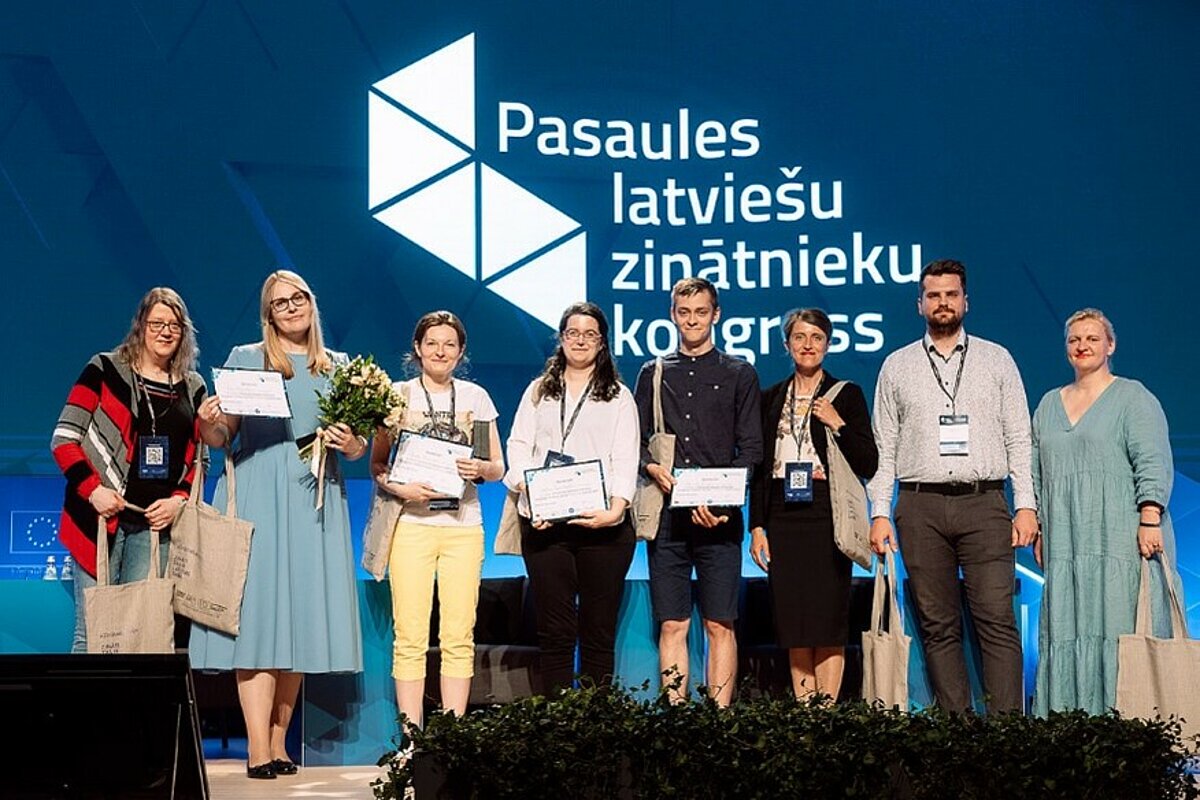
From June 27 to 29, the 5th World Congress of Latvian Scientists, "Science for Latvia," took place in Riga, bringing together more than 1,300 Latvian science ecosystem stakeholders from all over the world in person and remotely. The congress was one of the widest-reaching events in Latvian science. To focus on the analysis and potential solutions of present and future societal and global challenges, this year, its program was divided into three interdisciplinary and interlinked topics: Digital Transformation, Green Transition, and Science Impact.
The Congress featured Latvian and diaspora researchers, young researchers, students, entrepreneurs, international and local partners, and representatives from national and international public administration institutions and politicians.
At the beginning of the congress, our institute welcomed visitors and provided them with an opportunity to take a closer look at the everyday life of the institute. Among the visitors were scientists, industry representatives, and other interested parties. The participants of the visit were introduced to the institute by its director Andris Anspoks. The guests visited several laboratories - the Laboratory of Microscopy, the Laboratory of Micro and Nano Devices, the Laboratory of Spectroscopy, and the Laboratory of Materials for Energy Harvesting and Storage.
Dr. habil. phys. Andris Šternbergs, the ISSP UL’s deputy director for science, participated in the congress discussion on establishing a sustainable energy supply in Latvia, discussing sustainable energy sources such as hydrogen, nuclear, and solar energy.
In the panel discussion “Industry 5.0”, scientists and other industry experts shared their knowledge about what technologies will determine the development of the new industrial paradigm and the challenges of new technologies: the ISSP UL’s director, Dr. phys. Andris Anspoks particularly emphasized the importance of cooperation between science and industry and people and technology.
Within the framework of the Congress, a "Science Slam" competition was held, i.e., a competition for science research presentations understandable to a non-expert audience, in which eight doctoral students and applicants for a scientific degree participated. Among the four winners of the competition was the scientific assistant of the ISSP UL’s Laboratory of Spectroscopy, Rihards Ruska.
In parallel with the sessions, Latvian scientists also demonstrated inventions related to digitization. One of the presented research projects was the Optical Temperature Meter - an invention of our institute's scientists for accurate temperature measurements in a high electromagnetic field. Dr. phys. Andris Fedotovs explained that temperature measurements could be destroyed under the influence of a high electromagnetic field, which was not allowed in various fields, for example, medicine.
During the Congress, almost 200 poster presentations were demonstrated, among which Alexei Kuzmin, head of the ISSP UL’s EXAFS Spectroscopy Laboratory, presented the report "Non-contact nanothermometry based on X-ray absorption spectra" on the topic "Impact of science".
The Congress was organised by the Ministry of Education and Science of Latvia in collaboration with the Chancery of the President of Latvia, the Ministry of Foreign Affairs of Latvia, Latvian research universities (University of Latvia, Latvia University of Life Sciences and Technologies, Riga Technical University and Riga Stradiņš University), the Council of Rectors of Latvia, the Latvian Council of Science, the Latvian Academy of Science, the Association of Latvian Young Scientists, the Latvian Dental and Medical Association, the World Federation of Free Latvians, the Union of European Latvians, the American Latvian Association, the organization “Economic Co-operation and Investment for Latvia” (movement #esiLV), and the Employers’ Confederation of Latvia.
For more information, please visit the Congress web page.